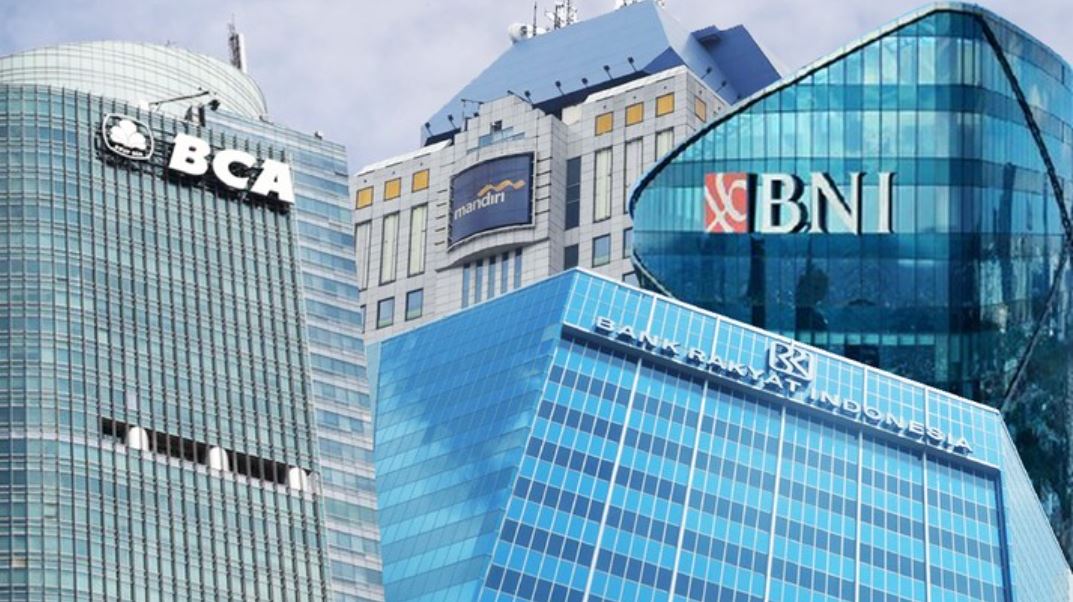
The recent geopolitical developments, particularly the heightened tensions in the Middle East and Eastern Europe, have added significant uncertainty to global financial markets. These tensions have contributed to risk aversion among investors, leading to an outflow of funds from emerging markets, including Indonesia. The impact has been particularly pronounced on Indonesian blue-chip banking stocks such as BBRI, BMRI, BBNI and BBCA, which are seen as sensitive to global capital movements.
Rising global risk premiums due to geopolitical conflicts and persistent concerns about U.S.-China relations have led foreign investors to reduce their exposure to emerging markets. This trend coincides with expectations of slower global growth and tightening monetary policies in major economies, which have further weakened investor sentiment towards high-beta assets, including Indonesian financial stocks.
Indonesian Big Banks Share Price Performance for the Past 1 Year
.png)
Indonesia's Big Four banks—BBCA, BBRI, BMRI, and BBNI—have experienced significant capital outflows amounting IDR 14.4tn (USD 910mn) which accounts for 92% of the total net outflows from the JCI over the past month (total of IDR 15.6tn of JCI outflow during the same period). Among these, BBRI has been most affected, with foreign ownership dropping to a multi-year low of 68.5% as of November 2024, compared to its peak of 79.2% in February 2024. This sharp decline highlights rising concerns over BBRI's exposure to the middle- to lower-income segments of the market, which are particularly vulnerable to declining purchasing power and ongoing macroeconomic challenges.
.png)
Subdued purchasing power remains a significant challenge, driven by stagnant income growth, rising inflation, and the continued depreciation of the rupiah. This is further exacerbated by a sharp increase in SRBI, which have recently surpassed 7%. These higher rates have put additional pressure on banks, forcing them to strike a delicate balance between loan repricing and the risk of asset quality deterioration.
Another pressing concern is the possibility of "kitchen sinking"—a practice where new management under a changing government administration may recognize hidden losses or restructure accounts, temporarily impacting reported earnings.
On the global front, escalating geopolitical tensions have heightened the risk of further spikes in treasury yields. This could accelerate capital outflows from domestic markets, compounding pressure on the rupiah and further straining Indonesia’s economic stability.
.png)
While the banking sector faces near-term challenges, its long-term growth outlook remains optimistic, supported by Indonesia’s structural economic reforms. Government-driven initiatives in mineral downstreaming, agriculture, and energy reforms are expected to fuel GDP growth over the medium to long term.
This economic expansion is anticipated to spur loan demand as business and consumer confidence gradually strengthens. The sector is projected to achieve a robust CAGR of 13.4% in aggregate earnings among the four major banks over the next five years.
Valuations in the banking sector have become increasingly attractive, with major banks trading near their 10-year average PBV.
.png)
Additionally, appealing dividend yields provide some downside protection, with BBRI, BMRI, and BBNI offering yields of approximately 8%, 6%, and 6%, respectively. However, investors are advised to adopt a cautious approach and wait for an improvement in sector sentiment before re-entering. Key factors to monitor include better credit quality, reduced funding costs, improved liquidity, and a more favorable macroeconomic environment.